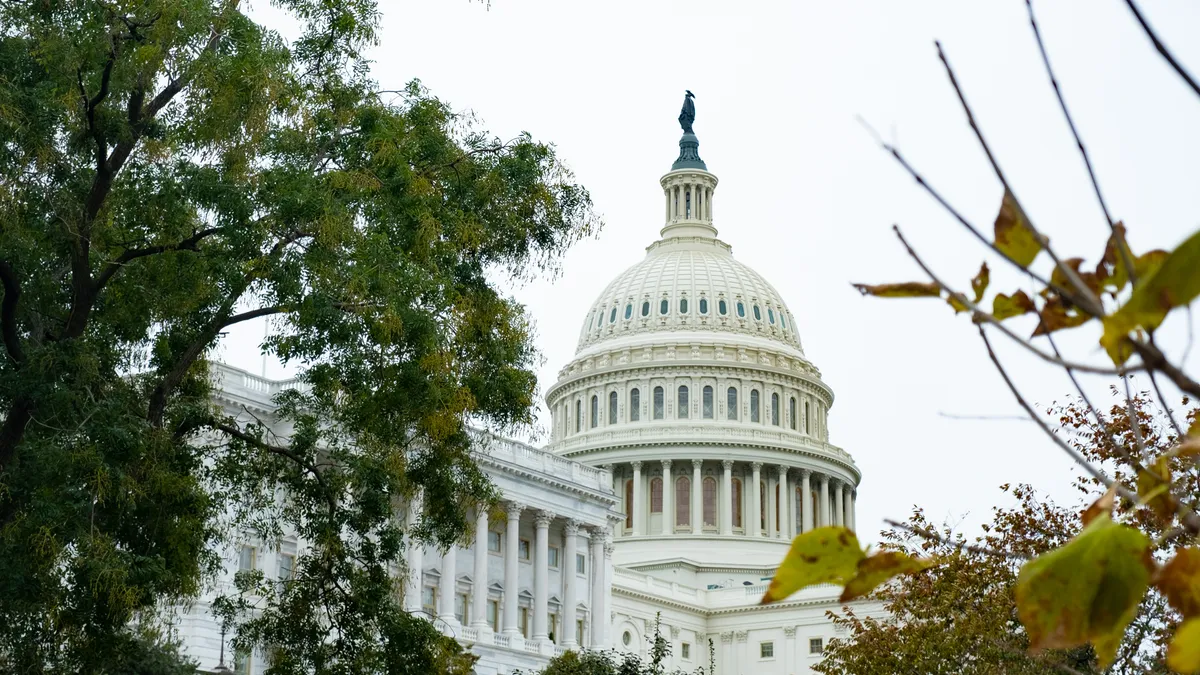Dive Brief:
- A new report from The Century Foundation is calling on lawmakers, state and private donors to invest $53 billion into the endowments of historically Black colleges and universities to make up for historic underfunding.
- At public HBCUs, the average endowment per full-time equivalent student was $7,265 in the 2019 fiscal year, about 3 ½ times smaller than the average endowment at public non-HBCU colleges, of $25,390 per FTE, according to the left-leaning think tank's analysis.
- The differences were even starker at private colleges. Private HBCUs had an average endowment of $24,989 per FTE, seven times smaller than the average endowment of $184,409 per FTE at other private schools.
Dive Insight:
Politicians have recently been interested in addressing chronic underfunding at HBCUs. President Joe Biden pledged support for historically Black colleges and other minority-serving institutions on the campaign trail, though recent legislative packages aren't delivering on some of those promised funding levels.
"The investments that are being proposed are great and needed," said Denise Smith, the report's author and a senior fellow at The Century Foundation. But, she added, larger investments should be made in these schools "to ensure that we are atoning for decades of discrimination."
HBCUs have also drawn recent attention from philanthropists. In 2019, one tech investor donated $34 million to settle the debt of some 400 students graduating that year from Morehouse College, a men's HBCU in Atlanta.
During this and last year, author MacKenzie Scott gave more than $1.5 billion in unrestricted money to around six dozen colleges, $560 million of which went to HBCUs, according to a Higher Ed Dive analysis. For many institutions, the gifts were their largest yet.
But in the report, Smith calls out issues with relying on private support to close public funding gaps. For one, these funding sprees are unevenly spread across the sector, and many small and lesser-known HBCUs are left out of receiving large gifts.
The report calls for an "unprecedented one-time investment" from the federal government to bolster HBCU endowments to healthy levels, with $40 billion coming from Congress and the rest through state matches or private sources.
Larger endowments would give HBCUs more stability and could help them provide scholarships to students who can't afford tuition, the report argues. It says a $53 billion infusion is necessary for HBCUs to have large enough endowments to eliminate student and family debt.
Smith wrote that the first $10 billion of federal funds should be based on enrollment and unrestricted, except for a "guard against state disinvestment" and enforcement of nonprofit requirements.
"That is just leveling the playing field," she said.
The proposal suggests for the remaining funding to be allocated based on several factors, including an institution's enrollment of low-income students, its debt levels, and its track record of alumni support.
"This funding would send a clear message that the nation is committed to making equity real; make up for the decades of systemic racism, inequities in funding, and inflation; and aid in leveling the playing field by repairing past wrongs," Smith wrote in the report.











